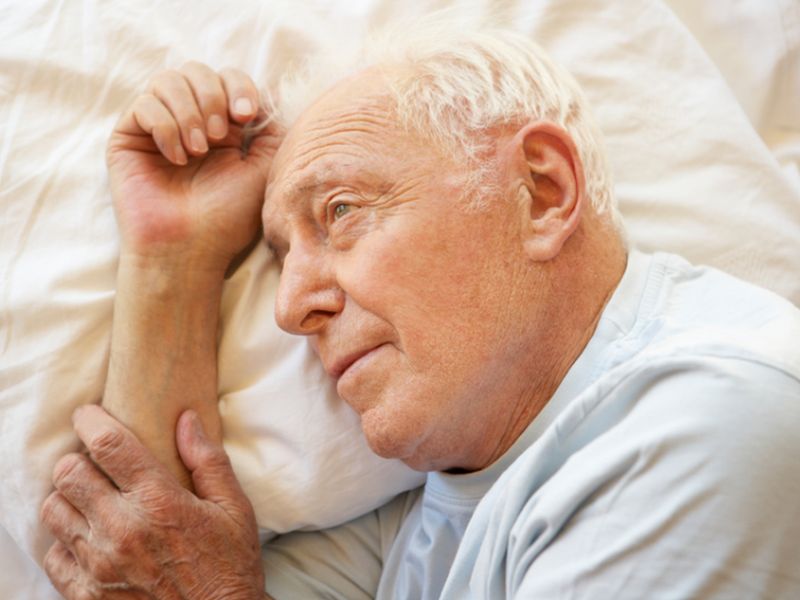

Insomnia disorder can be classified according to its chronicity and aetiology. Demented patients, as mentioned below, are also subject to early morning awakening. Sleep fragmentation is common in the elderly population, especially those with dementia. Sleep difficulty could arise from difficulties in falling asleep (sleep initiation), frequent awakening and difficulty in returning to sleep (sleep maintenance) or early-morning awakening (late insomnia). To fulfil the diagnostic criteria of insomnia disorder, one has to experience sleep difficulty despite sufficient chances to sleep, and the sleep difficulty should last for at least three days a week. According to DSM-5, insomnia disorder refers to dissatisfaction with the quality and quantity of sleep that cause distress or impairment in daily function. While there are no well-recognised diagnostic criteria or classification systems dedicated to insomnia disorder in the senior age group, a general framework for insomnia can be used in the encounter with elderly patients. Insomnia is the predominant sleep problem found among the elderly population. With a generally more sedentary and less social lifestyle, there is little drive for older adults with advanced sleep phase syndrome to reschedule their bedtime. Psychosocially, advanced sleep phase syndrome can also result from lifestyle changes after retirement and subsequently reduced light exposure.

Various other physiological malfunction processes at the cellular and systematic levels also contribute to circadian desynchrony and alternation of sleep patterns among elder people. Biologically, this can be a result of the decrease in the suprachiasmatic nucleus(SCN) volume and cell count and a decrease in melatonin secretion.

Elderly people tend to go to sleep and wake up earlier compared with young adults. Īdvanced sleep phase syndrome is another key feature of elderly sleep patterns. Therefore, short sleep time and insomnia among the elderly population should not be attributed to ageing alone. The authors suggested that a short total sleep time was associated with obesity, poor health and cognitive impairment. In a study done by Ohayon and Vecchierini, the median night-time sleep duration of elderly people aged 60 or above was about 7 hours, with no significant difference found among different sub-age groups of these elderly people. On the other hand, the duration of light sleep increases with age, with elderly people being more easily awakened by external stimuli and resulting in sleep fragmentation. on elderly women further suggests that ageing was associated with lower fast spindle and K-complex density in N2. A more recent study done by Schwarz et al. On the one hand, total sleep time, deep slow-wave sleep and sleep efficiency (the ratio of total sleep time to time in bed) decrease with age. Studies have shown that amount of sleep and sleep architecture change with age. The following paragraphs aim to present a general picture of sleep problems in senior groups.Ģ.

However, these problems are often unaware by medical professionals or not optimally and timely managed. Poor sleep is closely related to cognitive decline and the mental health of elderly people. It was also suggested that difficulties in initiating sleep and maintaining sleep in people aged 75 or above were associated with an increased risk of falls, which is a particular worry for elderly people. demonstrated in their study that short sleep duration is an independent predictor of stroke among the elderly with hypertension. While psychical health issues can affect sleep, poor sleep, in turn, can exacerbate mood and medical problems, causing a vicious cycle. Mild cognitive impairment, long-term use of sedative drugs and high inflammatory markers are also possible predicting sleep disturbance factors. Other less robust risk factors in this age group identified by different studies include low physical activity level, low economic status, loneliness and perceived stress. While causes of sleep disturbance among the elderly are multi-folded, it is clear that female gender, depressed mood and physical illnesses are general risk factors for sleep disturbance in the geriatric population. Another study in Italy suggested that insomnia was observed in 44.2% of subjects aged 65 or above. A recent meta-analysis study suggested that the prevalence of pooled sleep disturbance was up to 35.9% in older Chinese adults. Sleep problems are common in the elderly population.


 0 kommentar(er)
0 kommentar(er)
